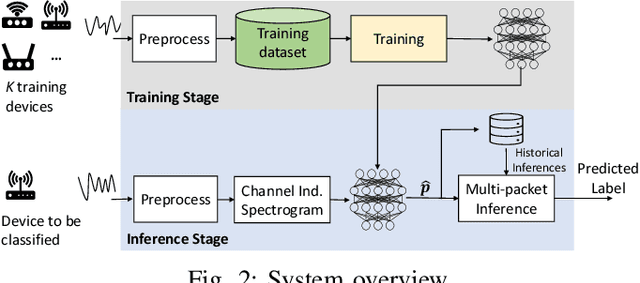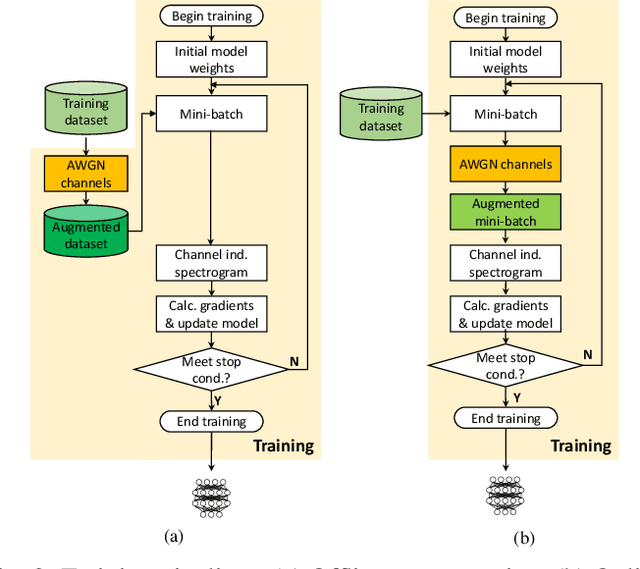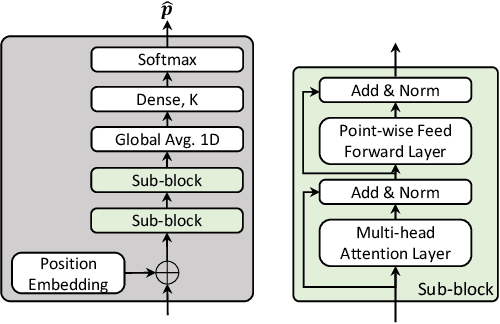Radio Frequency Fingerprint Identification for Security in Low-Cost IoT Devices
Paper and Code
Nov 28, 2021



Radio frequency fingerprint identification (RFFI) can uniquely classify wireless devices by analyzing the received signal distortions caused by the intrinsic hardware impairments. The state-of-the-art deep learning techniques such as convolutional neural network (CNN) have been adopted to classify IoT devices with high accuracy. However, deep learning-based RFFI requires input data of a fixed size. In addition, many IoT devices work in low signal-to-noise ratio (SNR) scenarios but the low SNR RFFI is rarely investigated. In this paper, the state-of-the-art transformer model is used as the classifier, which can process signals of variable length. Data augmentation is adopted to improve low SNR RFFI performance. A multi-packet inference approach is further proposed to improve the classification accuracy in low SNR scenarios. We take LoRa as a case study and evaluate the system by classifying 10 commercial-off-the-shelf LoRa devices in various SNR conditions. The online augmentation can boost the low SNR RFFI performance by up to 50% and multi-packet inference can further increase it by over 20%.
 Add to Chrome
Add to Chrome Add to Firefox
Add to Firefox Add to Edge
Add to Edge